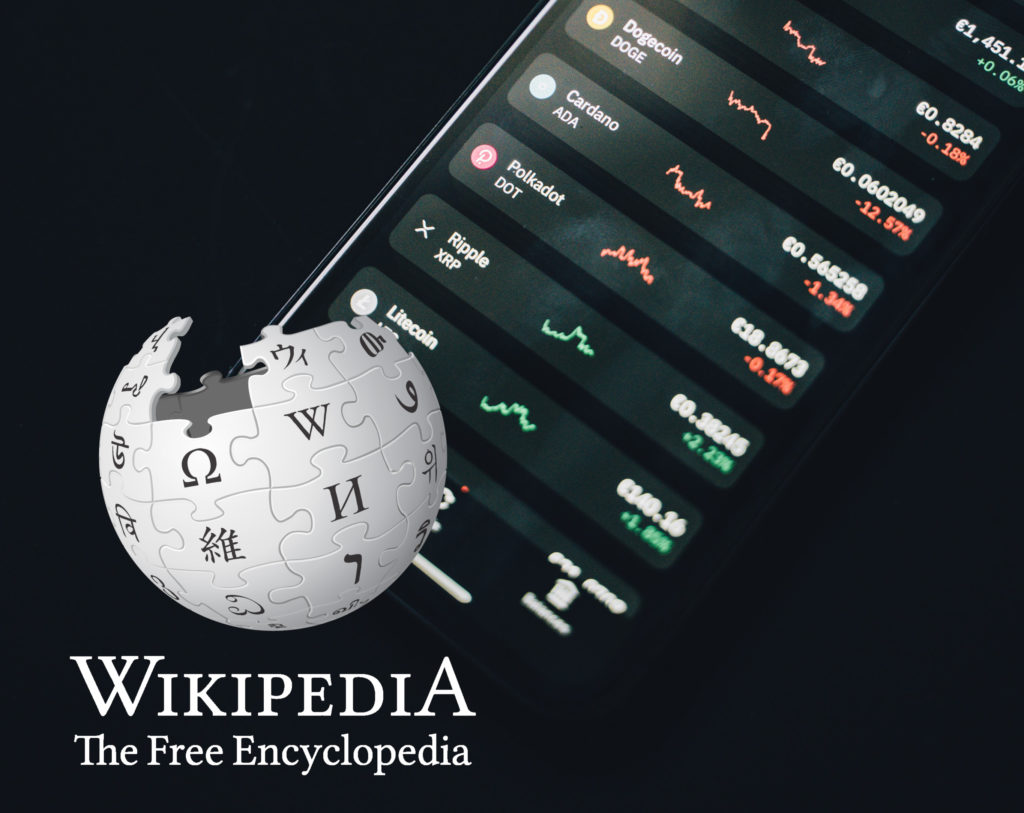
Obviously, there’s a lot happening in the crypto community right now. Events are developing very rapidly, highlighting many conversations individuals and organizations need to have about the role crypto plays in their finances.
That’s what we were talking about last week.
At that time, our team was examining Wikimedia’s decision to no longer accept donations in cryptocurrency. To determine whether or not this is a good move, we asked two questions:
Would this decision make Wikimedia’s users love Wikimedia more?
Would this decision make Wikimedia’s users trust Wikimedia more?
Sometimes love is tricky.
There are people out there who are extremely passionate about crypto. Perhaps you’ve met one or two yourself. People who are passionate about crypto in a positive way believe that having an alternative currency helps democratize the world. They point to Africa, where cryptocurrency allows people to receive payment for their labor and services faster and more reliably than they’d been able to with traditional banking services. And they point to Ukraine, where cryptocurrency donations have been used to fund the fight against Russian invaders.
Surely Wikimedia, an organization that exists to democratize knowledge and make information available to everyone in the world, should be actively embracing the crypto community as fellow travelers.
Not so fast, the people who are equally as passionate about crypto, but from a negative perspective. Crypto mining has huge negative impacts on the planet and the people who live there, they say. China, hardly renowned for caring for the environment, banned crypto mining within its borders. Much of this business went to Kazakhstan, overwhelming the nation’s power grid and leading to chaos and political upheaval.
Surely Wikimedia, an organization committed to sustainability, shouldn’t be involved with a crypto community that operates in such an environmentally harmful way.
But decisions have to be made.
As much as organizations (and individuals!) would like everyone to love them, in real life, choices have to be made and decisions implemented. No matter what choice you make, someone will love you less as a result.
Pragmatically, it’s a good idea to have some idea of the proportional size of particularly passionate people in your user base. We’re all familiar with the vocal minority phenomenon – a small percentage of customers who through volume and tenacity dominate the conversation.
When this decision was made, cryptocurrency donations represented less than one percent of Wikimedia’s revenue stream. If this move alienates the pro-crypto contingent to the point where they’d no longer support Wikimedia’s mission, not much revenue would be lost. The love might be gone, but the wallet would still feel right.
And meanwhile, the anti-crypto users who felt Wikimedia made this decision in order to better live their corporate values may now love the brand more. Walking the walk inspires lasting loyalty.
Given the relative size of these user groups, it seems likely that this move will result in more love for Wikimedia.
But what about trust?
Now, as I mentioned, this conversation happened last week. So we spend some time talking through how divesting from crypto meant missing out on future gains, and what did that mean to the trust Wikimedia’s users have in the brand. Was abandoning tomorrow’s fortune a violation of today’s trust?
Does avoiding a crash strengthen trust?
It’s very, very easy to debate this point at length, but before you do that, it’s good to remember what Wikimedia’s user base trusts them to do. And the answer to that, across the multiple platforms under the Wikimedia umbrella, is to be a repository for the world’s knowledge, accessible to everyone. That’s the primary mission. That’s the trust Wikimedia should be focused on building – certainly more than they should be focused on effectively managing a volatile asset during complicated times.
So through this lens, Wikimedia’s decision built trust with its user base.
Crypto and Trust: Welcome to the Wild West
Another of the primary reasons Wikimedia gave for no longer accepting crypto donations is the high risk of fraud. The perception that crypto is a high-risk, untrustworthy market had more than a few adherents last week. Now that there’s story after story after story of people suffering financial devastation, that perception will be even stronger.
Crypto’s trust issues are directly tied to the problems that make the alternative currency so helpful to people in tough situations: the lack of government oversight & regulation. Investor moves that would result in SEC penalties had they happened on Wall Street are creating and crashing the cryptocurrency market. It’s often characterized as a Wild West situation, where anything goes.
Will the crypto world stay wild and free forever? I have my doubts. Whether measures to create greater stability and accountability will be imposed by nation-states or financial institutions remains to be seen, but they are coming. The genie is out of the bottle: cryptocurrencies are here to stay. The challenge is making them more trustworthy.
What do you think? I’m very interested in what you think of Wikimedia’s choices, as well as the current challenges crypto faces in terms of the trust.
